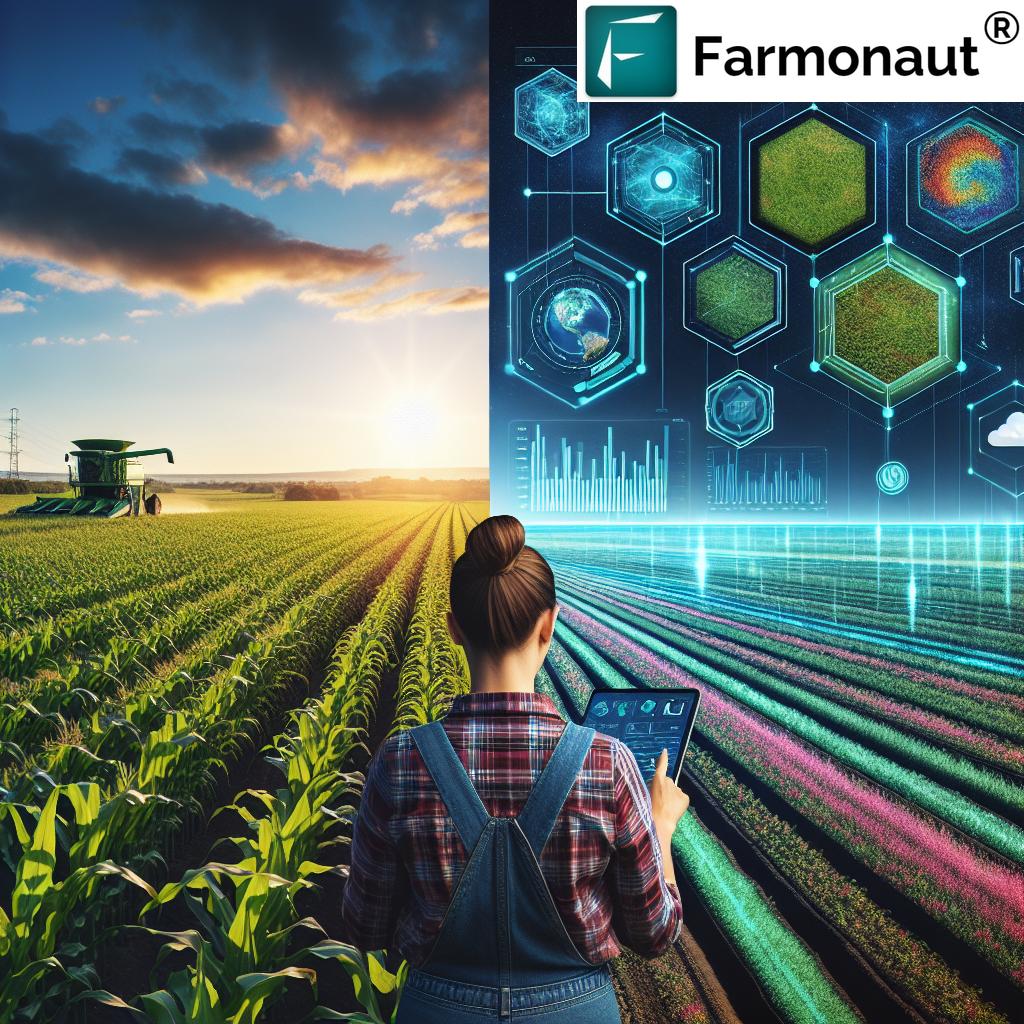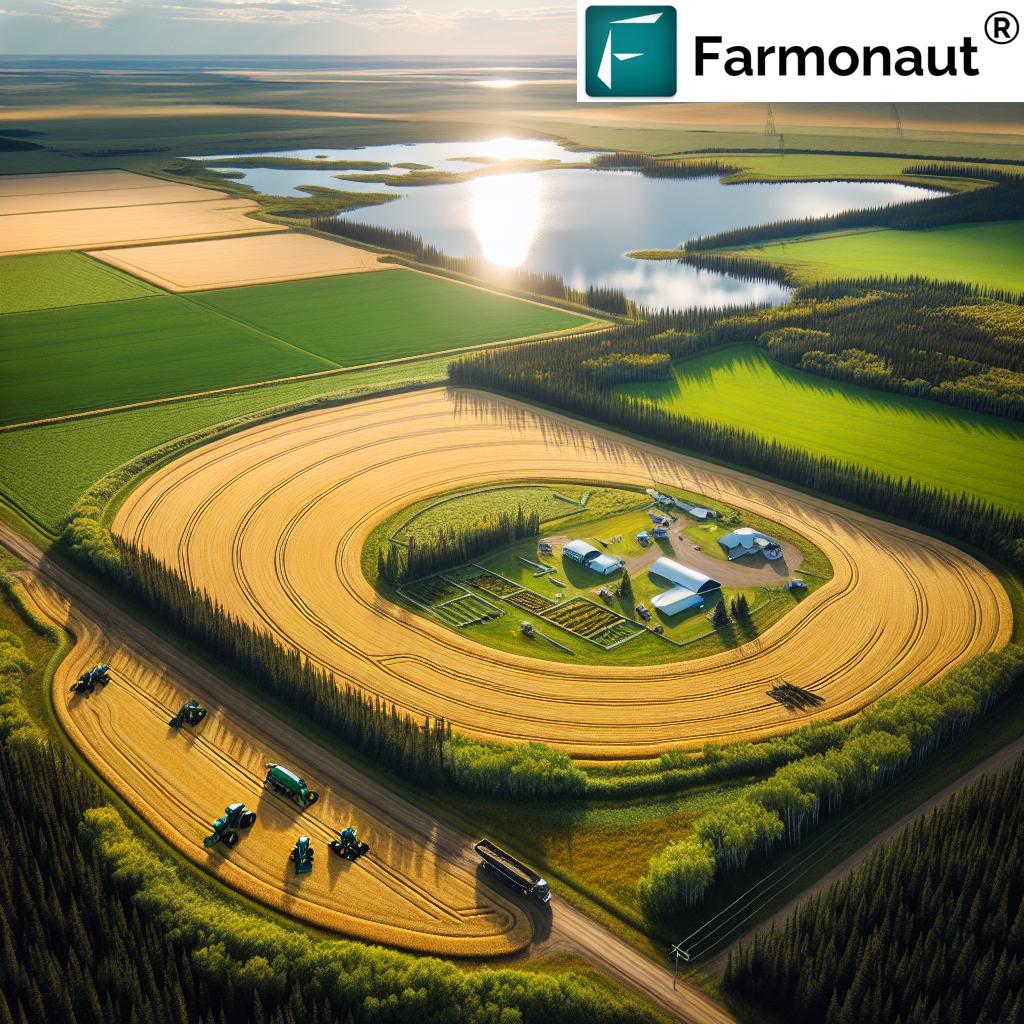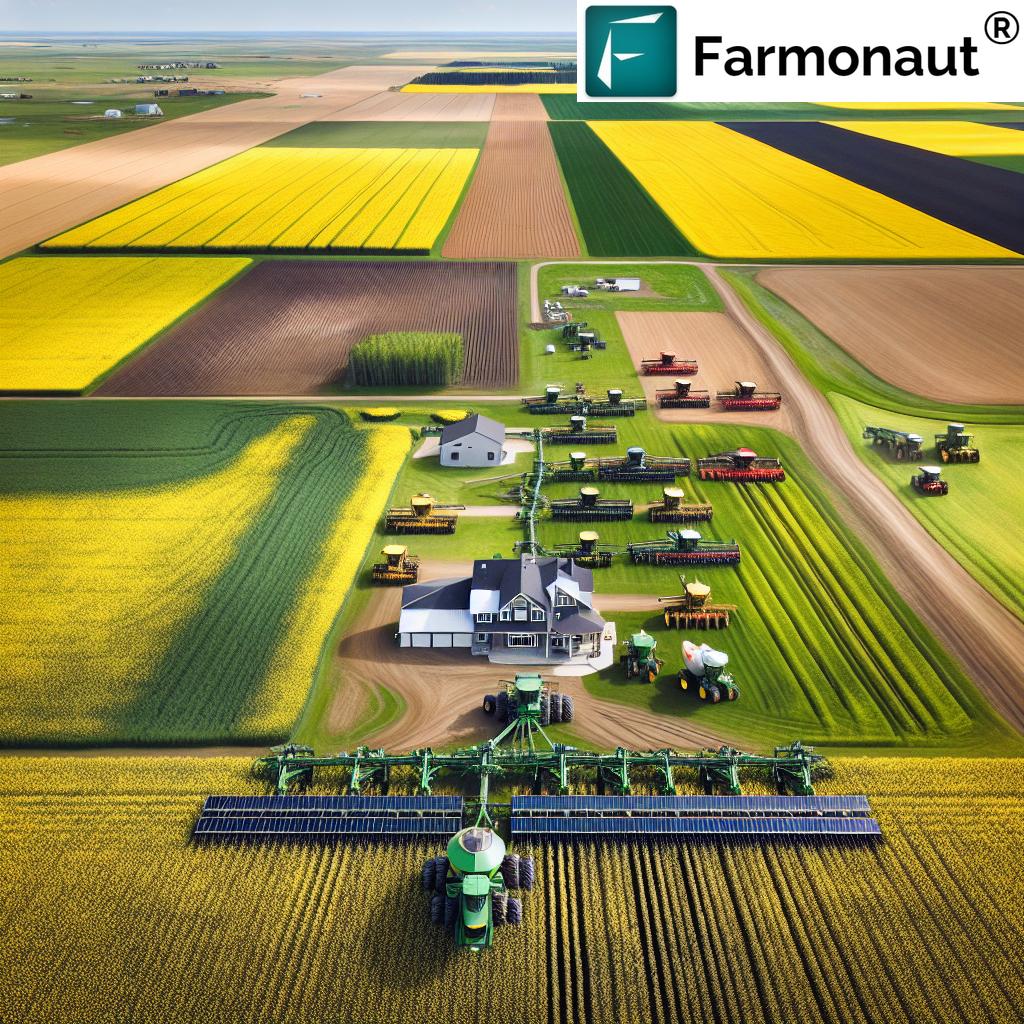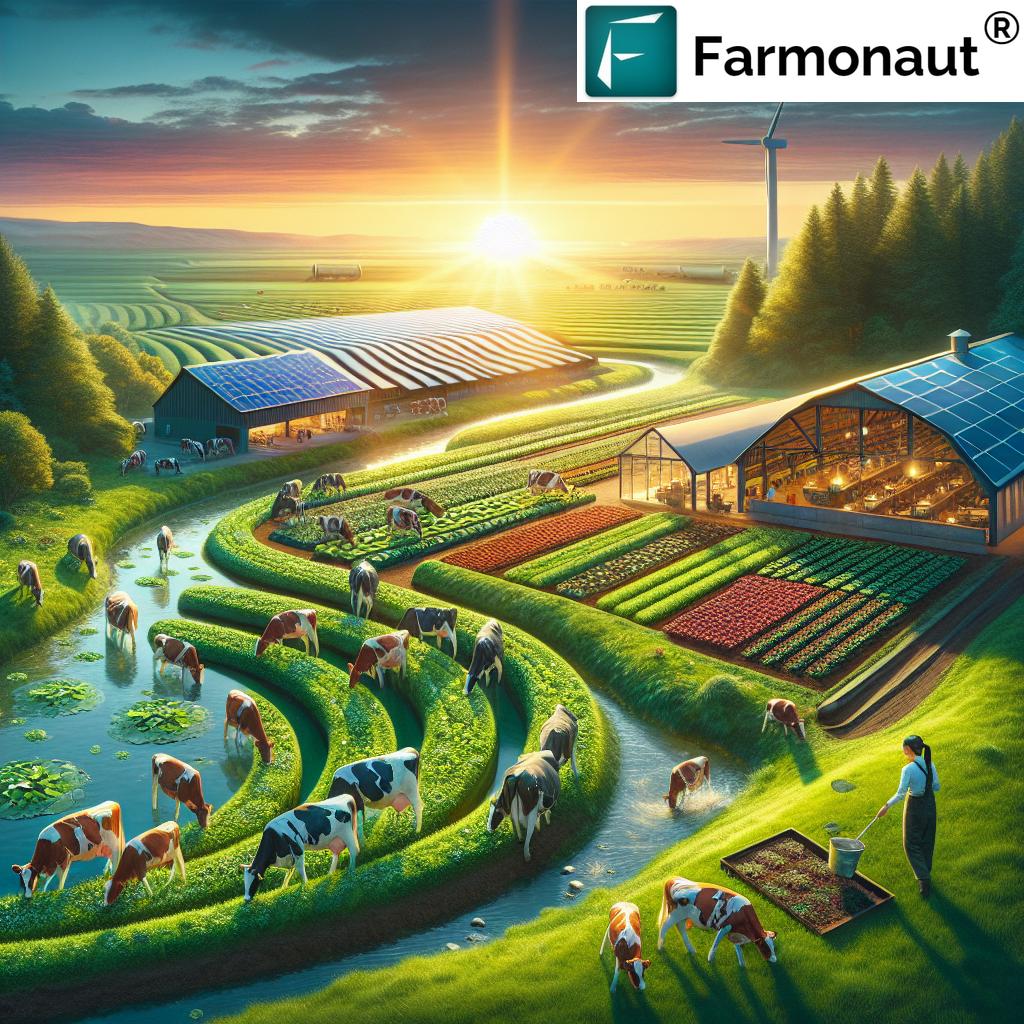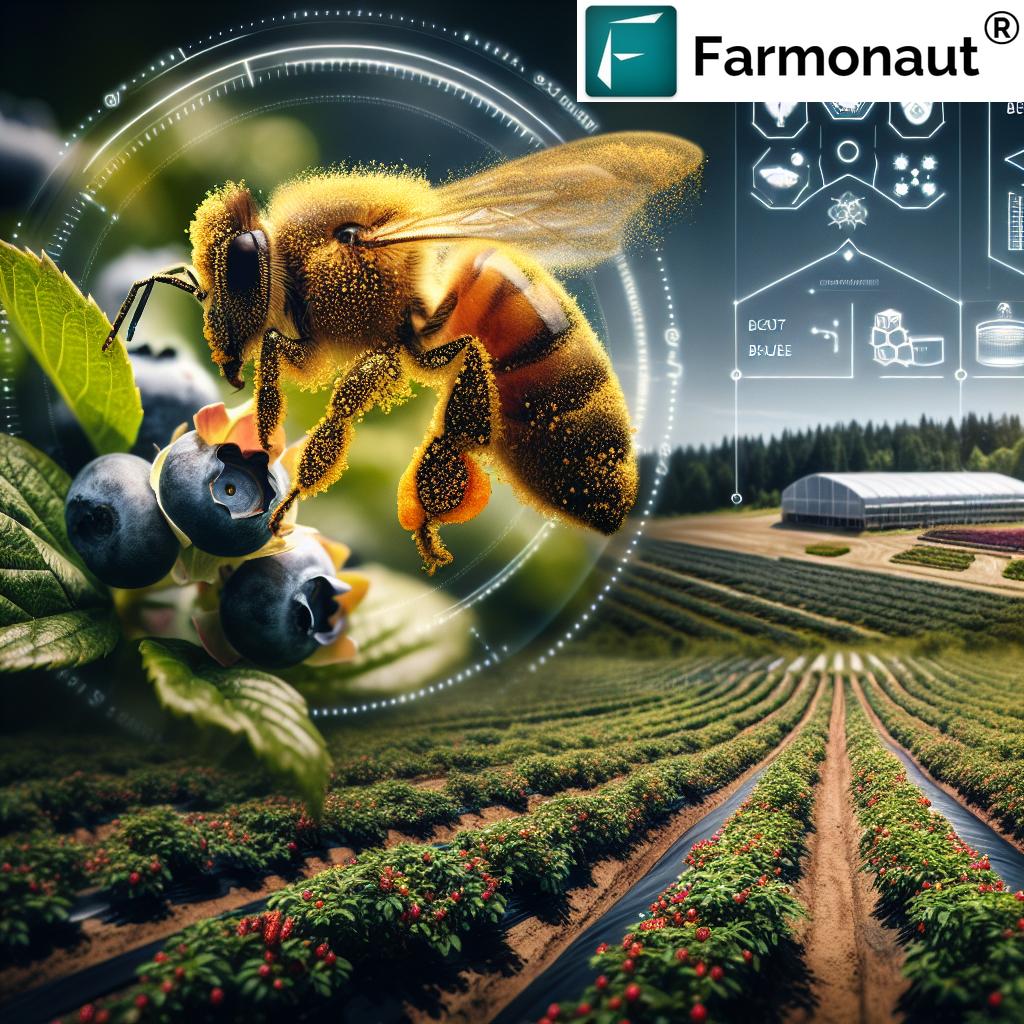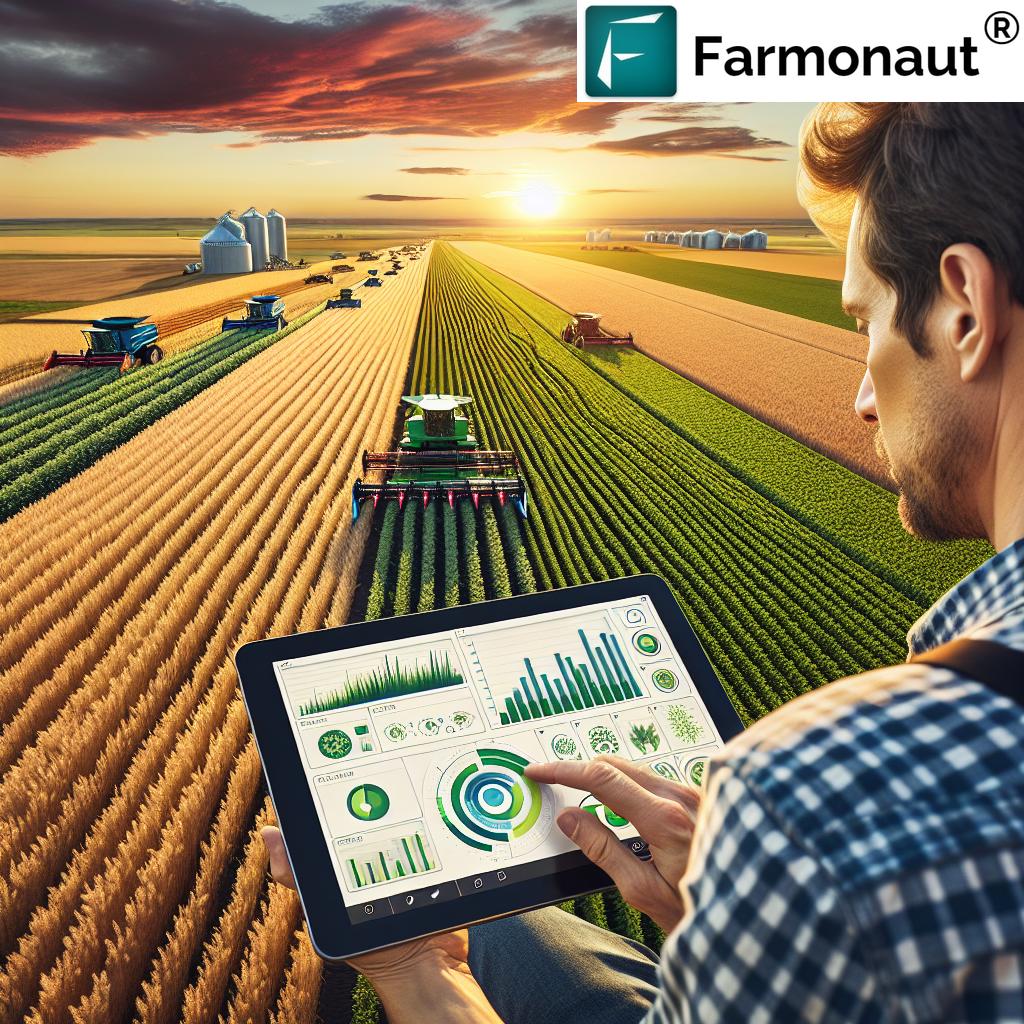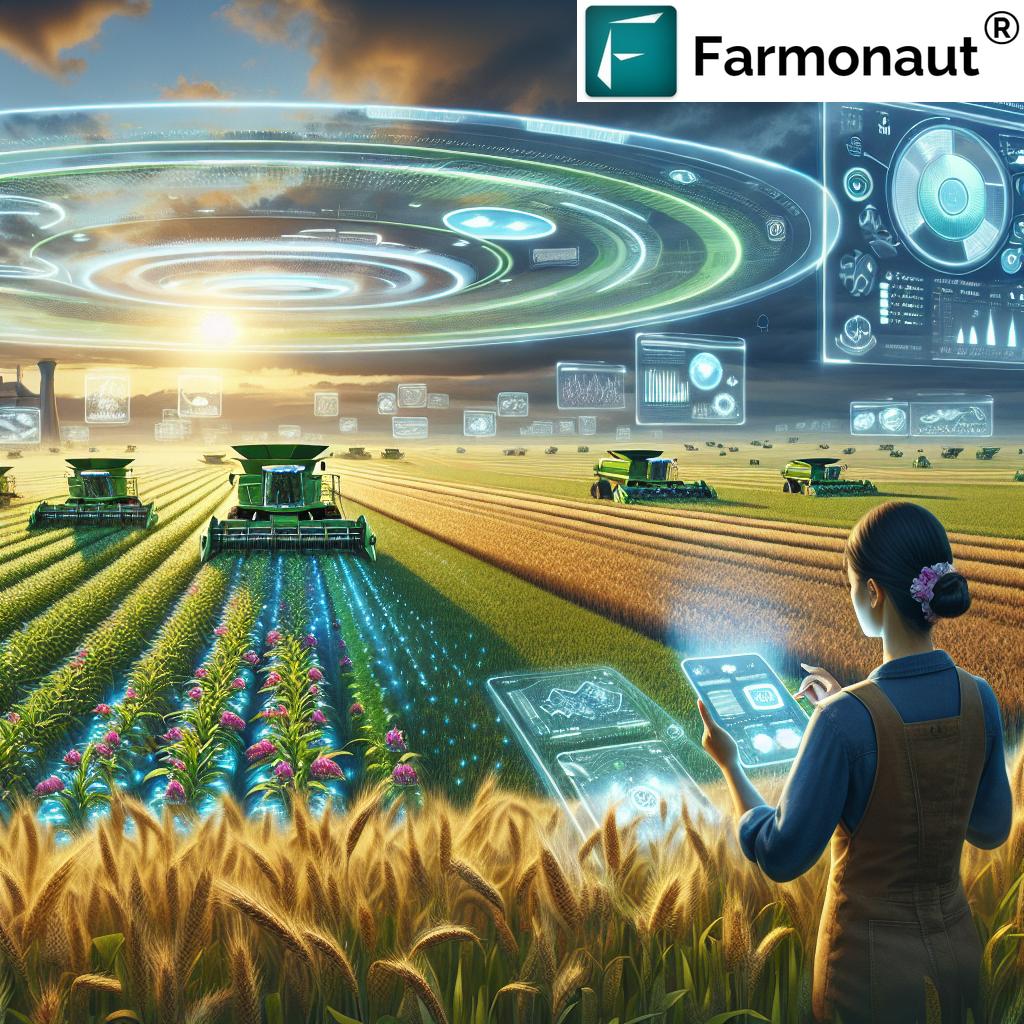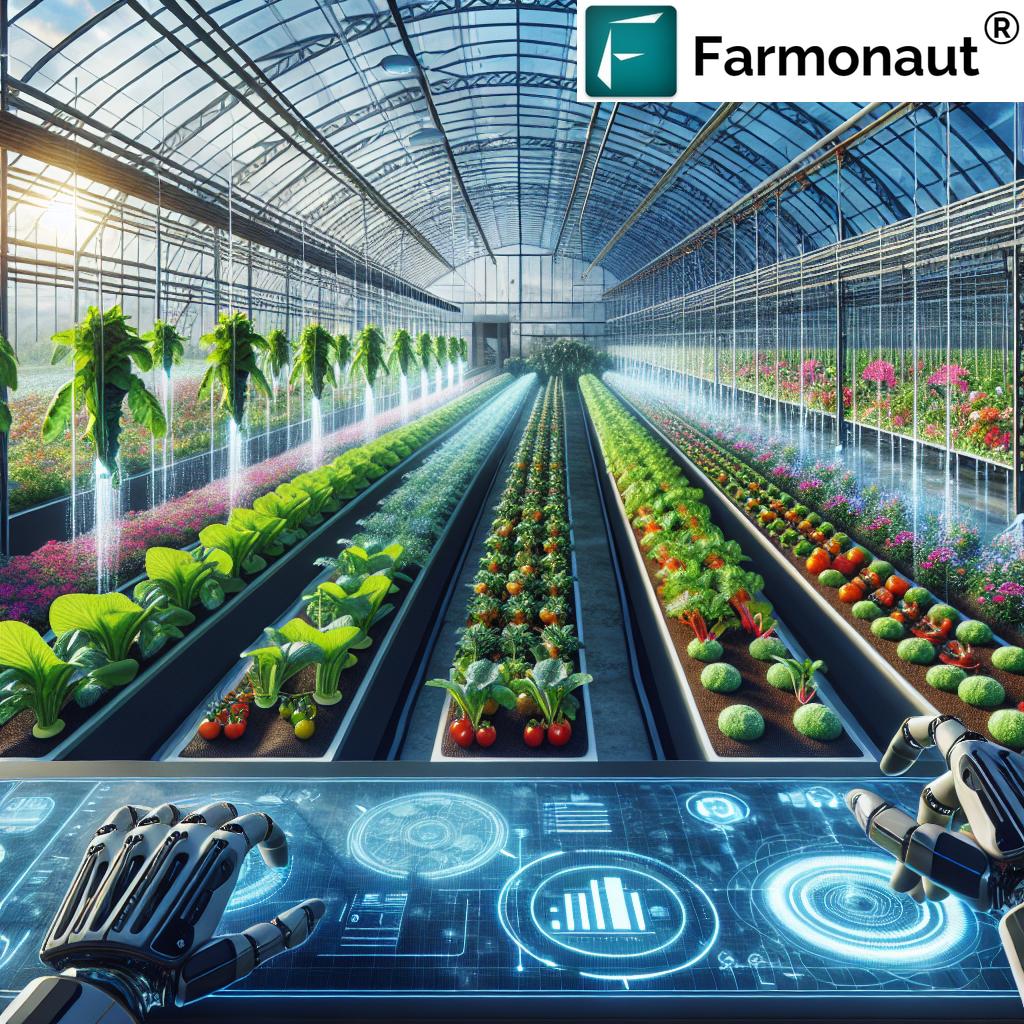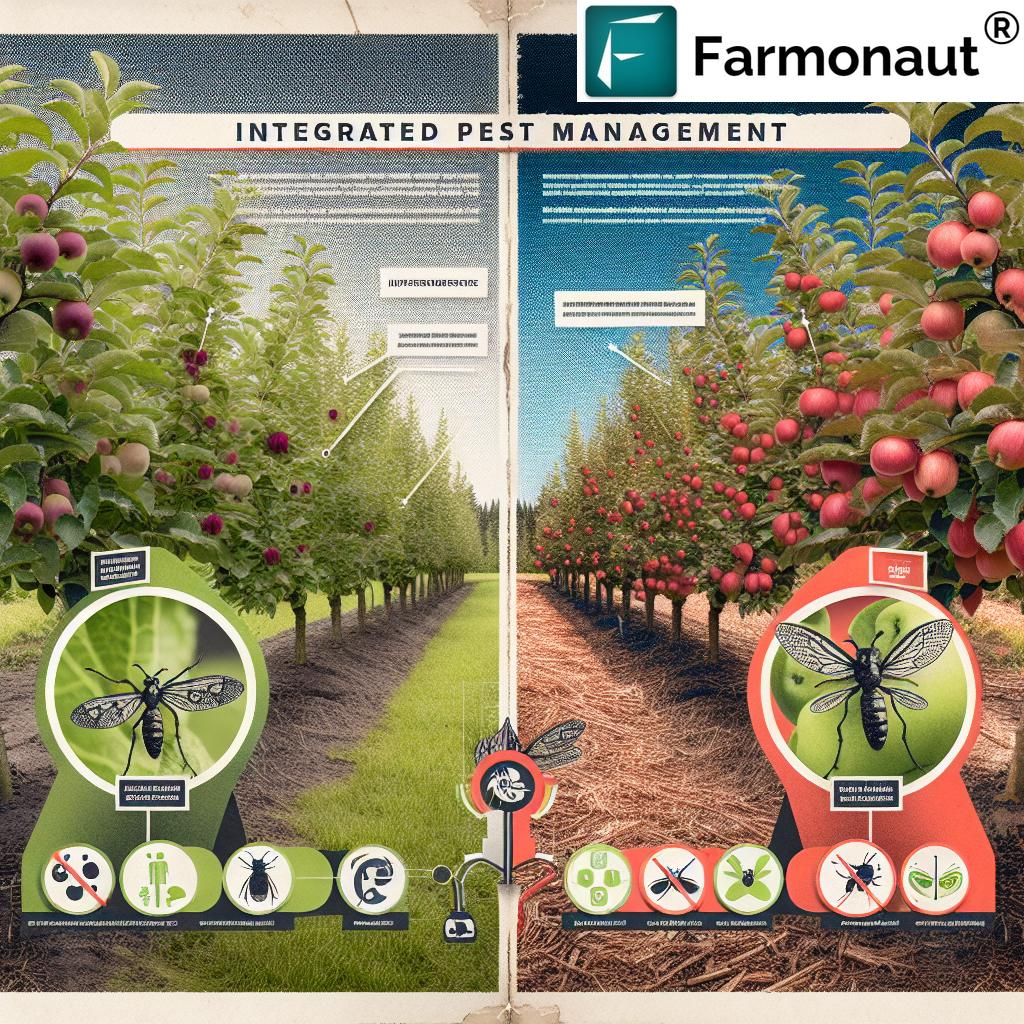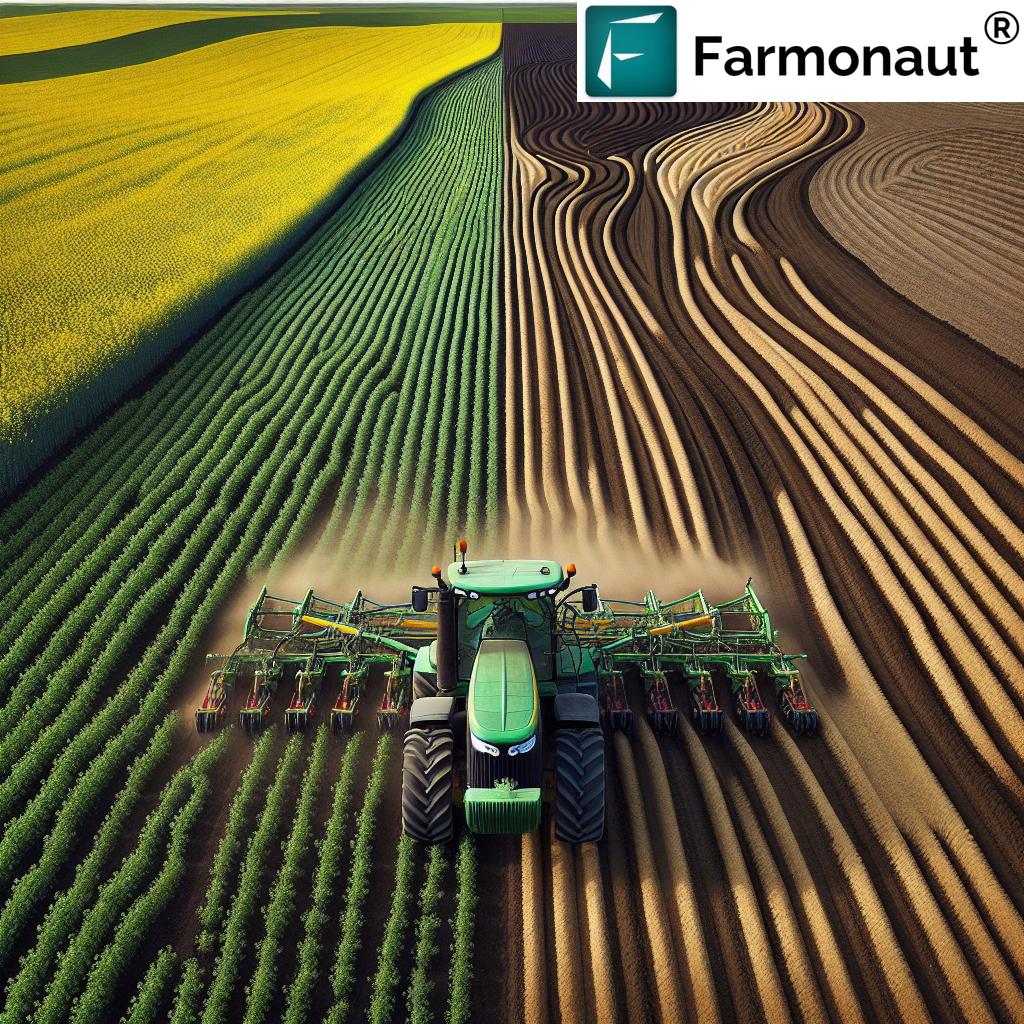Revolutionizing Canadian Agriculture: How Precision Farming Technology is Boosting Crop Yields in Guelph
“Precision farming technologies can increase crop yields by up to 30% while reducing water usage by 20-50%, Canadian studies show.”
Welcome to our comprehensive exploration of how precision agriculture technology and smart farming solutions are transforming the agricultural landscape in Guelph, Canada. As we delve into the world of digital agriculture tools and crop management software, we’ll uncover the innovative techniques that are reshaping modern farming practices and boosting crop yields across the region.
In this blog post, we’ll examine the latest advancements in agricultural data analytics, GIS applications in agriculture, and crop yield optimization techniques that are revolutionizing food production and enhancing farm efficiency. Whether you’re a farmer, industry professional, or simply interested in the future of agriculture, this insightful journey through the cutting-edge technologies shaping modern farming is sure to provide valuable information and inspiration.
The Rise of Precision Agriculture in Guelph
Guelph, located in the heart of Ontario’s agricultural belt, has become a hotbed for precision agriculture technology adoption. Farmers in this region are increasingly turning to smart farming solutions to address the challenges of climate change, resource scarcity, and the need for increased food production. Let’s explore how these innovations are making a significant impact on the local agricultural scene.
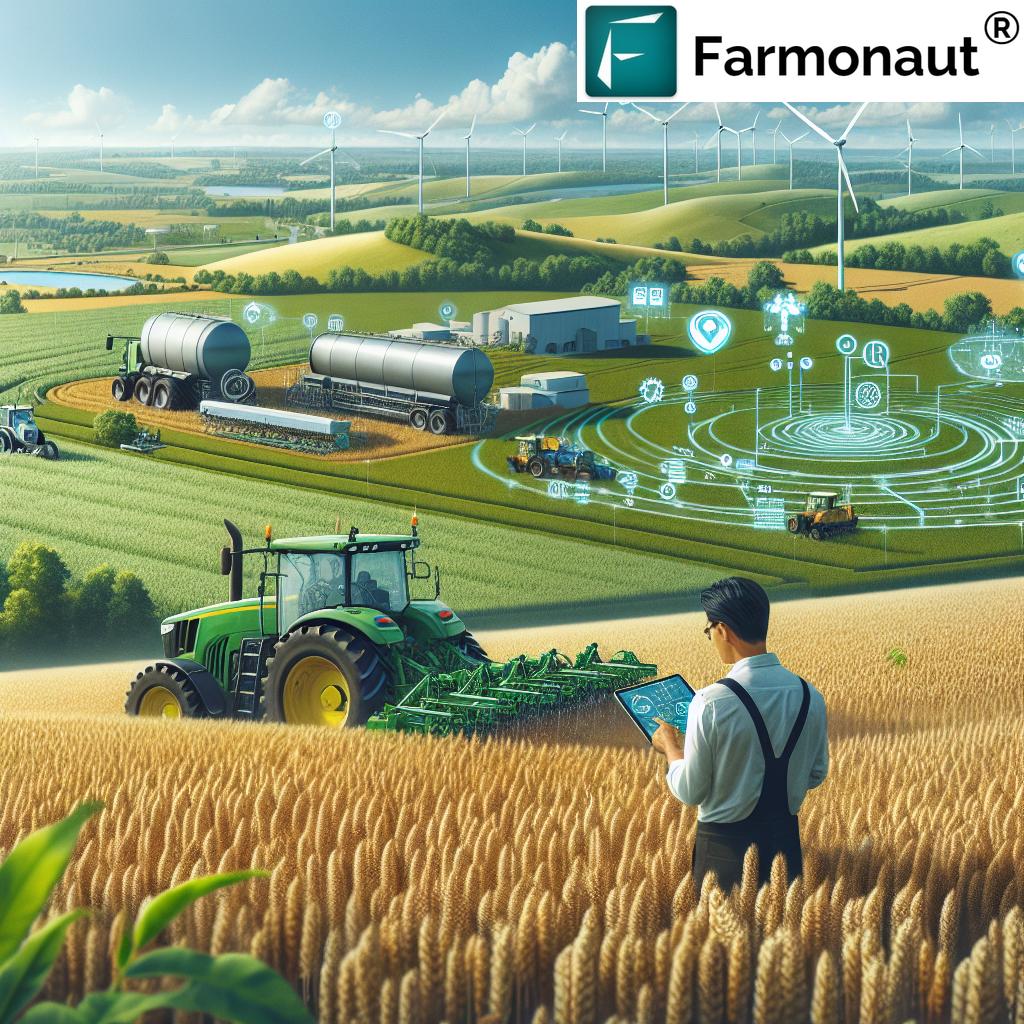
Adoption of Precision Farming Technologies in Guelph
To better understand the rapid adoption of precision farming technologies in Guelph, let’s take a look at the following table:
| Technology Type | Adoption Rate 2019 (%) | Adoption Rate 2024 (%) | Estimated Yield Increase (%) | Average Cost Savings (CAD/acre) |
|---|---|---|---|---|
| GPS-guided tractors | 45 | 78 | 10 | 25 |
| Drone imagery | 20 | 55 | 15 | 30 |
| Soil sensors | 30 | 65 | 12 | 35 |
| Variable rate application systems | 25 | 60 | 18 | 40 |
| Crop monitoring software | 35 | 70 | 20 | 45 |
As we can see from the table, the adoption rates of various precision farming technologies in Guelph have increased significantly over the past five years. This rapid uptake is a testament to the tangible benefits these technologies offer in terms of yield increases and cost savings.
The Role of Agricultural Data Analytics in Modern Farming
One of the key drivers behind the precision agriculture revolution is the power of agricultural data analytics. By harnessing vast amounts of data collected from various sources, farmers in Guelph are gaining unprecedented insights into their operations, enabling them to make more informed decisions and optimize their crop yields.
Key Benefits of Agricultural Data Analytics:
- Improved crop yield predictions
- Optimized resource allocation
- Enhanced pest and disease management
- Better understanding of soil health
- More efficient irrigation practices
Innovative platforms like Farmonaut are at the forefront of this data-driven revolution, offering advanced satellite-based farm management solutions that provide real-time insights into crop health, soil moisture levels, and other critical metrics. These tools empower farmers to make data-driven decisions that can significantly impact their bottom line.
Explore Farmonaut’s cutting-edge agricultural data analytics tools:
GIS Applications in Agriculture: Mapping the Future of Farming
“GIS applications in agriculture have helped farmers in Guelph reduce fertilizer use by 15% while maintaining or improving crop quality.”
Geographic Information Systems (GIS) have become an integral part of modern agriculture, offering farmers powerful tools for spatial analysis and decision-making. In Guelph, GIS applications are being used to create detailed maps of farm fields, analyze soil composition, and plan efficient irrigation systems.
Key GIS Applications in Agriculture:
- Precision planting and harvesting
- Soil mapping and analysis
- Crop rotation planning
- Water management and irrigation optimization
- Yield mapping and forecasting
By leveraging GIS technology, farmers in Guelph are able to create highly detailed and accurate maps of their fields, allowing for more precise application of inputs such as fertilizers and pesticides. This not only reduces costs but also minimizes environmental impact, contributing to more sustainable farming practices.
Smart Farming Solutions: The Internet of Things (IoT) in Agriculture
The Internet of Things (IoT) is revolutionizing agriculture by connecting various devices and sensors to create a network of smart farming solutions. In Guelph, farmers are increasingly adopting IoT technologies to monitor and manage their crops and livestock more efficiently.
Popular IoT Applications in Guelph Agriculture:
- Smart irrigation systems
- Automated greenhouse controls
- Livestock monitoring and tracking
- Weather stations and forecasting
- Soil moisture sensors
These smart farming solutions are helping Guelph farmers to reduce labor costs, optimize resource use, and improve overall farm productivity. By automating routine tasks and providing real-time data on crop and livestock conditions, IoT technologies are enabling farmers to make more informed decisions and respond quickly to changing conditions.
Discover how Farmonaut’s IoT-enabled solutions can transform your farming operations:
Crop Management Software: Streamlining Farm Operations
Crop management software has become an essential tool for farmers in Guelph, helping them to streamline their operations and make data-driven decisions. These sophisticated platforms integrate various aspects of farm management, from planting and harvesting to inventory and financial planning.
Key Features of Modern Crop Management Software:
- Field mapping and crop planning
- Yield forecasting and analysis
- Pest and disease management
- Inventory tracking and supply chain management
- Financial planning and reporting
By centralizing all aspects of farm management into a single platform, crop management software helps Guelph farmers to reduce administrative overhead, minimize errors, and make more informed decisions based on comprehensive data analysis.

Sustainable Farming Practices: Balancing Productivity and Environmental Stewardship
As the agricultural industry in Guelph continues to evolve, there is a growing emphasis on sustainable farming practices that balance productivity with environmental stewardship. Precision agriculture technologies are playing a crucial role in this shift towards more sustainable farming methods.
Sustainable Farming Practices Enabled by Precision Agriculture:
- Reduced water usage through precision irrigation
- Minimized chemical inputs through targeted application
- Improved soil health through data-driven crop rotation
- Reduced carbon footprint through optimized machinery use
- Enhanced biodiversity through precision conservation techniques
By adopting these sustainable farming practices, Guelph farmers are not only reducing their environmental impact but also improving the long-term health and productivity of their land. This approach is crucial for ensuring the future of agriculture in the region and meeting the growing demand for sustainably produced food.
Farm Equipment Innovations: The Next Generation of Agricultural Machinery
The agricultural machinery sector is undergoing a significant transformation, with new farm equipment innovations hitting the market every year. In Guelph, farmers are investing in cutting-edge machinery that integrates seamlessly with their precision farming technologies.
Notable Farm Equipment Innovations:
- Autonomous tractors and harvesters
- High-precision planting equipment
- Variable-rate sprayers and fertilizer applicators
- Robotic milking systems for dairy farms
- Drones for crop scouting and spraying
These advanced machines are helping Guelph farmers to increase efficiency, reduce labor costs, and improve the precision of their farming operations. By integrating with farm management software and IoT devices, this new generation of agricultural machinery is playing a crucial role in the precision farming revolution.
Crop Yield Optimization: Maximizing Production Through Data-Driven Decisions
At the heart of precision agriculture is the goal of crop yield optimization. By leveraging the power of data analytics and advanced farming technologies, farmers in Guelph are finding new ways to maximize their crop yields while minimizing resource inputs.
Key Strategies for Crop Yield Optimization:
- Precision planting based on soil and climate data
- Variable-rate application of fertilizers and pesticides
- Real-time crop health monitoring and intervention
- Optimized irrigation based on soil moisture data
- Data-driven crop rotation and diversification
Through these strategies, Guelph farmers are seeing significant improvements in their crop yields, with some reporting increases of up to 30% in certain crops. This not only improves profitability but also contributes to food security and sustainability in the region.
Explore how Farmonaut’s crop yield optimization tools can boost your farm’s productivity:
Agricultural Economics Trends: The Financial Impact of Precision Farming
The adoption of precision farming technologies is having a significant impact on agricultural economics in Guelph. While the initial investment in these technologies can be substantial, many farmers are finding that the long-term benefits far outweigh the costs.
Economic Benefits of Precision Farming:
- Reduced input costs (fertilizers, pesticides, water)
- Increased crop yields and quality
- Improved labor efficiency
- Enhanced risk management through data-driven decision making
- Access to premium markets for sustainably produced crops
As more farmers in Guelph adopt precision agriculture technologies, we’re seeing a shift in the local agricultural economy. Farms are becoming more profitable and resilient, while also contributing to the growth of a new agtech sector in the region.
Digital Agriculture Tools: Empowering Farmers with Information
The proliferation of digital agriculture tools is putting powerful information and analytics capabilities directly into the hands of Guelph farmers. From mobile apps to web-based platforms, these tools are making it easier than ever for farmers to access and utilize critical data for their operations.
Popular Digital Agriculture Tools in Guelph:
- Satellite imagery analysis apps
- Weather forecasting and alerts
- Crop disease identification tools
- Market price tracking and analysis
- Farm management dashboards
These digital tools are democratizing access to advanced agricultural technologies, allowing even small-scale farmers to benefit from precision agriculture techniques. By providing real-time data and actionable insights, these tools are helping Guelph farmers make more informed decisions and optimize their operations.
Discover Farmonaut’s suite of digital agriculture tools:
Addressing Agricultural Challenges: Pest Management, Disease Control, and Weed Prevention
Precision agriculture technologies are proving to be invaluable in addressing some of the most persistent challenges faced by farmers in Guelph, particularly in the areas of pest management, disease control, and weed prevention.
Precision Agriculture Solutions for Common Agricultural Challenges:
- Early detection of pest infestations through satellite and drone imagery
- Targeted application of pesticides using variable-rate sprayers
- Predictive modeling for disease outbreaks based on weather and crop data
- Precision weed mapping and targeted removal
- Use of beneficial insects and crop rotations for natural pest control
By adopting these precision agriculture techniques, Guelph farmers are able to respond more quickly and effectively to potential threats to their crops. This not only helps to protect yields but also reduces the need for broad-spectrum pesticide applications, contributing to more sustainable farming practices.
The Future of Farming in Guelph: Emerging Trends and Technologies
As we look to the future of farming in Guelph, several exciting trends and technologies are on the horizon that promise to further revolutionize the agricultural sector.
Emerging Trends and Technologies in Guelph Agriculture:
- Artificial Intelligence (AI) for advanced crop and livestock management
- Vertical farming and urban agriculture solutions
- Blockchain technology for improved traceability and supply chain management
- Gene editing techniques for crop improvement
- Augmented reality (AR) tools for farm management and training
These emerging technologies have the potential to address some of the most pressing challenges facing agriculture in Guelph, from climate change adaptation to meeting the growing demand for locally produced food. As the agricultural sector continues to evolve, Guelph is well-positioned to remain at the forefront of innovation in precision farming.
Conclusion: The Transformative Power of Precision Agriculture in Guelph
As we’ve explored throughout this blog post, precision agriculture technology is truly revolutionizing the farming landscape in Guelph. From GPS-guided tractors to AI-powered crop management systems, these innovative tools are helping farmers to boost crop yields, reduce costs, and adopt more sustainable practices.
The rapid adoption of precision farming technologies in Guelph is a testament to their effectiveness and the forward-thinking nature of the local agricultural community. As these technologies continue to evolve and new innovations emerge, we can expect to see even greater transformations in the way food is produced in this region.
For farmers, industry professionals, and anyone interested in the future of agriculture, staying informed about these technological advancements is crucial. By embracing precision agriculture and continuing to innovate, Guelph’s agricultural sector is not only securing its own future but also contributing to the development of more sustainable and efficient farming practices worldwide.
FAQ Section
1. What is precision agriculture?
Precision agriculture is an approach to farm management that uses information technology and various tools to ensure that crops and soil receive exactly what they need for optimum health and productivity. It aims to increase efficiency, maximize yields, and reduce environmental impact.
2. How does precision agriculture benefit farmers in Guelph?
Precision agriculture benefits Guelph farmers by increasing crop yields, reducing input costs, improving resource efficiency, enabling better decision-making through data analytics, and promoting sustainable farming practices.
3. What are some common precision agriculture technologies used in Guelph?
Common technologies include GPS-guided tractors, drone imagery, soil sensors, variable rate application systems, and crop monitoring software. These tools help farmers manage their fields more precisely and efficiently.
4. How does GIS contribute to precision agriculture?
Geographic Information Systems (GIS) in agriculture allow farmers to create detailed maps of their fields, analyze soil composition, plan efficient irrigation systems, and make data-driven decisions about crop management.
5. What role does IoT play in smart farming solutions?
The Internet of Things (IoT) enables the connection of various devices and sensors in agriculture, allowing for automated monitoring and control of farm operations, from irrigation systems to livestock tracking.
6. How does precision agriculture contribute to sustainable farming practices?
Precision agriculture promotes sustainability by reducing water usage, minimizing chemical inputs, improving soil health, reducing carbon footprint, and enhancing biodiversity through targeted and efficient farming practices.
7. What are the economic benefits of adopting precision farming technologies?
Economic benefits include reduced input costs, increased crop yields and quality, improved labor efficiency, better risk management, and potential access to premium markets for sustainably produced crops.
8. How are digital agriculture tools empowering farmers in Guelph?
Digital agriculture tools provide farmers with real-time data, actionable insights, and advanced analytics capabilities, enabling them to make more informed decisions and optimize their operations.
9. What emerging technologies are shaping the future of farming in Guelph?
Emerging technologies include Artificial Intelligence for advanced crop management, vertical farming solutions, blockchain for supply chain management, gene editing techniques, and augmented reality tools for farm management.
10. How can farmers in Guelph get started with precision agriculture?
Farmers can start by adopting basic technologies like GPS-guided tractors or crop monitoring software, and gradually incorporate more advanced tools as they become familiar with precision agriculture practices. Consulting with local agricultural experts and technology providers can also help in developing a tailored precision agriculture strategy.





